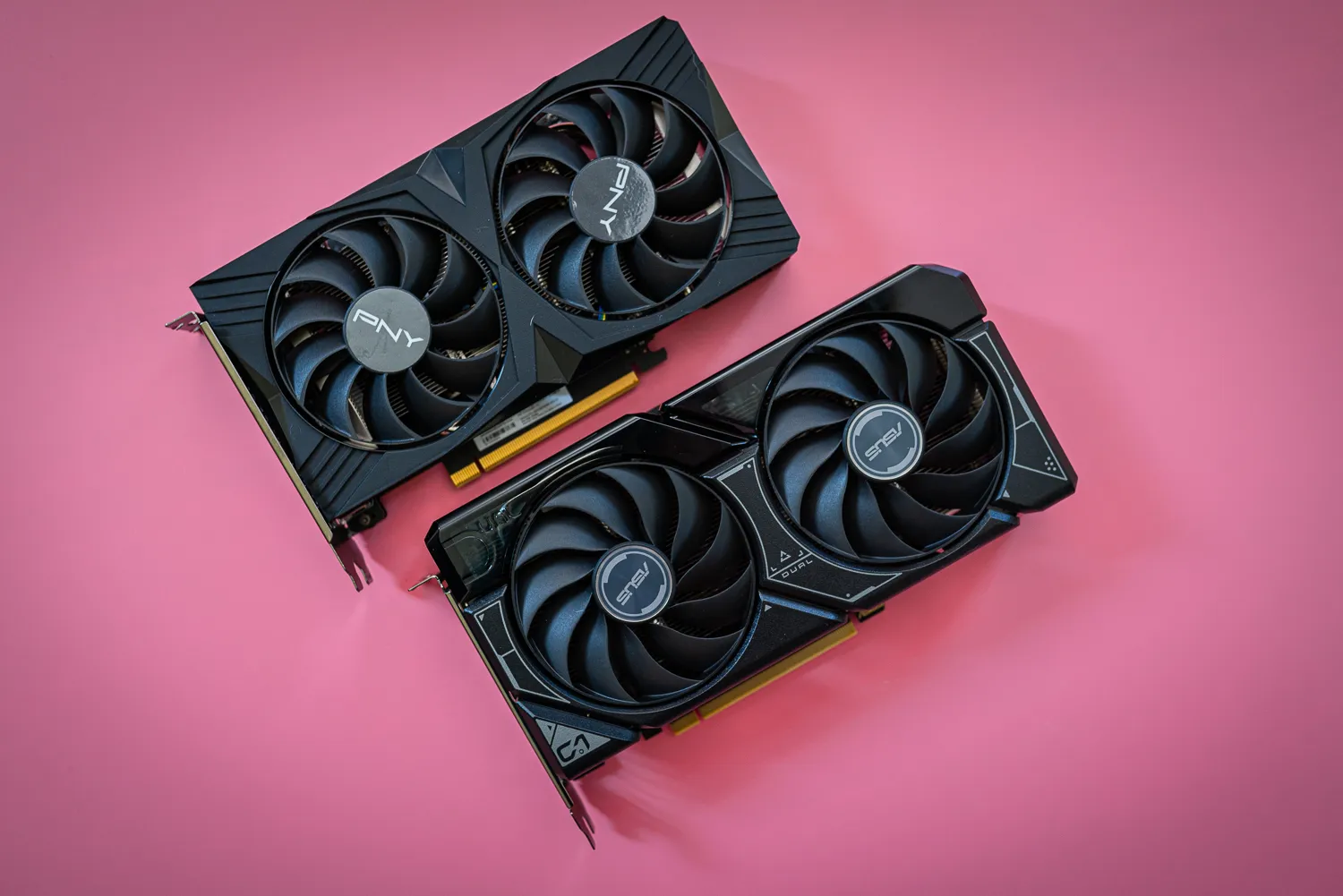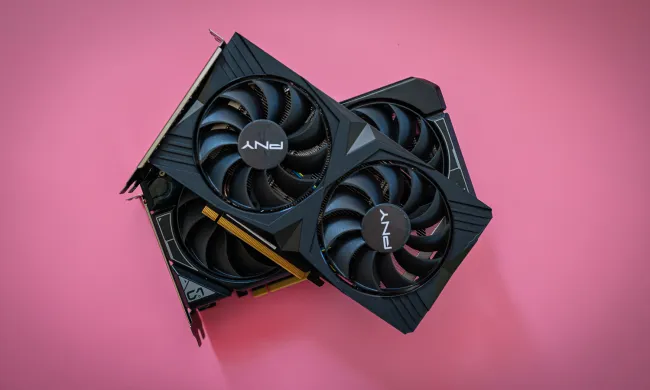Nvidia’s RTX 5060 Ti could repeat last generation’s mistakes
Nvidia's RTX 5060 Ti is said to be on the horizon, and today's leak reveals how much it might cost once it arrives.

 Jacob Roach / Digital Trends
Jacob Roach / Digital Trends
Nvidia’s list of the best graphics cards is about to expand with the arrival of the RTX 5060 Ti 16GB/8GB and the RTX 5060 non-Ti. We don’t know yet, but we know that they’re coming. But today’s leak shows us that gamers may have been right to worry about how much these GPUs will cost. It looks like Nvidia could walk down the same path it has paved with the RTX 40-series, and that’s not necessarily good news.
The information comes from Board Channels, which is a source with a good track record. Still, remember that we need to take everything with a pinch of salt until Nvidia itself confirms the specs and the pricing.
With that obligatory disclaimer out of the way, Nvidia is still rumored to be just over a week away from announcing the new GPUs. As previously reported, the RTX 5060 Ti 16GB, RTX 5060 Ti 8GB, and the RTX 5060 are all said to be ready for an April 15 reveal, followed by an April 16 release date. The review embargo is said to be lifting on the same day as the GPUs go on sale.
The reason I mention the review embargo is that I actually would’ve liked for these GPUs to have a little breathing room before they go on sale. Giving potential buyers the time to read reviews before buying is especially important now that the GPU market is in a bad state. With graphics cards simply flying off the shelves, shoppers won’t have time to stop and think: “Is this card worth it?” — they’ll simply have to buy it or let it get sold out. Well, that’s been the case with the rest of the RTX 50-series launches, at least.
The RTX 5060 Ti might set you back a fair amount
 Jacob Roach / Digital Trends
Jacob Roach / Digital TrendsThe question of value is an important one, and this leak makes me worry about that part of it all. According to Board Channels, the RTX 5060 Ti (in both iterations) will share the same pricing as its predecessor. This means $400 for the 8GB version of the card and $500 for the 16GB model.
Considering that current GPU prices are through the roof, $400 and $500 might not seem so bad. But the previous generation had its own issues in the xx60 tier of graphics cards. Nvidia gave the RTX 4060 Ti more memory, but it kept the same narrow bus and stifled the bandwidth; as a result, the GPU failed to deliver a meaningful generational upgrade.
If the company does the same thing with the RTX 5060 Ti, and still keeps the prices at $400 and $500, that’ll be a bit of a disappointment. I can’t complain about more VRAM — we definitely need it, with many modern games putting 8GB GPUs through the wringer. Besides, the switch to GDDR7 will boost bandwidth regardless, so we can hope for a better gen-on-gen improvement than the one we’ve seen previously.
On the other hand, if this leak turns out to be true, at least Nvidia won’t be raising its prices like it did with the RTX 5090. Perhaps that’s one way to frame it … but I still would’ve liked to see the GPUs at a lower price point, especially the 16GB version. If the leaks are to be believed, we’ll have much more certainty soon enough.
Monica is a computing writer at Digital Trends, focusing on PC hardware. Since joining the team in 2021, Monica has written…
The RTX 50-series is the worst GPU launch in recent memory

Nvidia has had some less-than-stellar graphics card launches over the years. Its RTX 2000-series was poorly received, with little interest in the flagship features of the time, and the RTX 40-series hardly blew us away. But the RTX 50-series has been something else entirely. It's the worst GPU launch I can remember in a long time.
If you've been following along, the latest is that the RTX 5060 and 5060 Ti are delayed again. But that's just one more straw on the camel's funeral pyre for this catastrophic GPU generation.
In the beginning, there was overhype
It all started off strong for the RTX 50 series. Nvidia CEO Jensen Huang took to the stage at CES 2025 and made some truly grandiose claims which had everyone excited. The RTX 5090 was going to double performance of the RTX 4090. The RTX 5070 was going to offer 4090-level performance at $549. Multi frame generation was going to give Nvidia such a lead, that AMD's cards would look ridiculous in comparison.
Nvidia might once again delay the GPU gamers want most
If a GPU is yet to be announced, can we consider it to be delayed? Maybe, maybe not, but if you trust leakers, Nvidia's upcoming best graphics cards for gamers on a budget are seemingly stuck in limbo. The RTX 5060 and the RTX 5060 Ti are said to be delayed once again, and gamers might have to wait for quite a long time to get their hands on one of the new RTX 50-series GPUs.
This grim update comes from Board Channels, which is a website frequented by people who claim to be affiliated with Nvidia's add-in board (AIB) partners. According to the report, the RTX 5060 Ti (in both its iterations, meaning the 8GB and the 16GB models) will now launch in mid-April, followed by the RTX 5060 in mid-May. Nvidia is said to have notified its AIBs about these delays.
Nvidia RTX Pro 6000 Blackwell sets a new standard for workstation GPUs
Nvidia announced a host of new GPUs at its GTC 2025 conference on Tuesday, including the RTX Pro Blackwell series. The highlight component of the series is the RTX Pro 6000 Blackwell GPU, developed for workstations. The RTX Pro 6000 Blackwell GPU is also available in variants to support desktops, laptops, and data centers. The component is intended to aid professional designers, developers, data scientists, and creatives, the Verge noted.
The RTX Pro naming sequence allows the Blackwell-based GPU to stand out against previous architectures, including Ada Lovelace, Ampere, and Turing, as well as the standard consumer product GPUs, Tech Radar Pro noted.

 JaneWalter
JaneWalter 


































